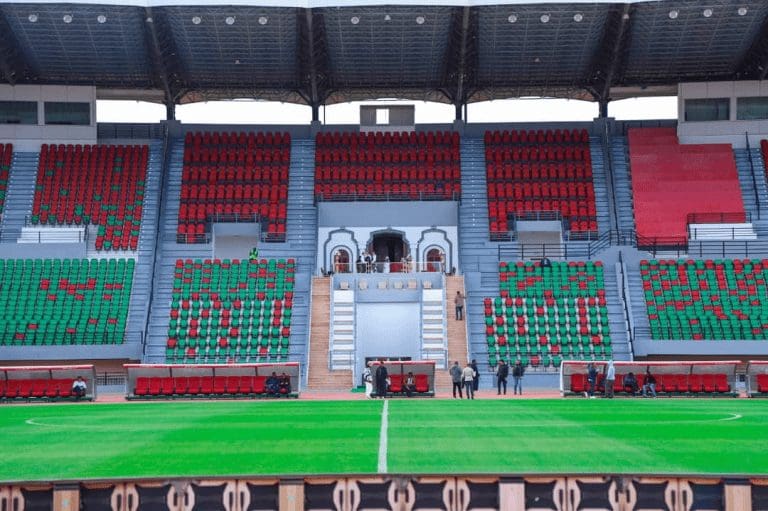Morocco’s cultural city of Fez is showcasing aspects of its facades in view of a possible organisation of the African Cup of Nations 2025.
By our special correspondent Cheikh Diop
Candidate for hosting the tournament, Morocco has solid assets in terms of infrastructure to host the continental football showpiece.
The historic city is located 180 kilometres east of Rabat, the administrative capital.
The religious city has serious aspects, notably a sports complex that meets FIFA’s standards, perfectly combining tradition and modernity.
Built between 1994 and 2003 at a total cost of 40 million euros, this multifunctional stadium, which is in keeping with the architecture of the city, hosted its first official match on November 25, 2007, on the occasion of the final of the Throne Cup, according to its director Anass Erghouni.
The complex has been renovated by the National Society for the Management and Rehabilitation of Stadiums (SONARGES).
It has a capacity of 45,600, three training fields with natural grass, two of which are annexes, a conference room, a medical centre, a fitness room and a doping control room, among others.
“The architecture of the sports complex reflects Fez, a historic city considered the cultural capital of Morocco,” said Mr. Anass Erghouni, general manager of the Anass Erghouni complex.
A typically Moroccan architecture that differentiates Fez, the repository of thirteen centuries of the kingdom’s history, from other cities in the kingdom.
This spiritual and cultural Mecca of Morocco fascinates by its splendour. It perfectly combines tradition and modernity with an urban setting that captivates visitors.
This thousand-year-old city is one of the oldest in Islam. It was the administrative capital of the Kingdom of Morocco until 1912, when it was transferred to Rabat.
The religious city nicknamed “the Athens of Africa”, is also a place of diversity where Berbers, Arabs, Jews and Christians live together in total tolerance and harmony.
Fez is also famous for its medina, its famous Qaraouiyine mosque, its museums, its mausoleums, its universities…
It is classified as a world heritage site by the United Nations Educational, Scientific and Cultural Organization (UNESCO).
Founded by the Idrissids, Fez is also famous for its medina, which is home not only to numerous palaces, but also to the oldest university in the world, Al-Quaraouiyine.
The construction of this sports complex is in addition to the Hassan II stadium located in the municipality, which had a capacity of only 6,000.
“If Morocco is to host the 2025 African Cup of Nations, the city of Fez will be a candidate to host matches of the competition,” added its director.
This sporting jewel already plays a major role in the results of the local club Maghreb de Fez (Mas), fourth in the Moroccan Botola in 2022.
While waiting to know the host country for AfCON 2025, the sports complex of Fez wants to become a stronghold of Moroccan football.
The stadium was already included in Morocco’s bid for the 2006 and 2010 World Cups.
Its current capacity (45,000) could be increased with a view to hosting 2030 World Cup in Morocco, according to officials.
CD/lb/as/APA


